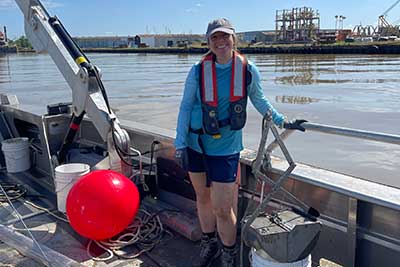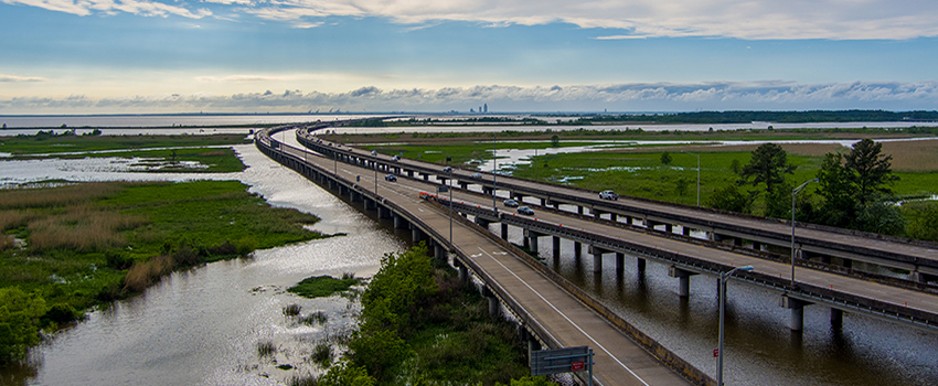Ph.D. Environment & Society
Why A Ph.D. in Environment & Society?
This program is designed to provide transdisciplinary graduate education and research training integrating the environmental and social sciences Students in the program will take a transdisciplinary core course in socio-environmental systems and multi-disciplinary electives across environmental sciences, social sciences, and research methods as part of a highly flexible curriculum designed to allow diverse specializations. Earning a Ph.D. in Environment & Society demonstrates a level of competence and accomplishment that enables graduates to pursue careers as transdisciplinary scientists, academics, and environmental managers focused on understanding and addressing society's most pressing environmental problems.

Environment & Society Ph.D. Program
"I chose the Environment & Society Ph.D. program because I am interested in a research driven interdisciplinary career path."

Environment & Society Ph.D. Program
"I chose the Environment & Society Ph.D. because I wanted to combine my three passions: people, the environment, and research."

Environment & Society Ph.D. Program
"The E&S program and the flexibility it offers was the perfect choice for me to obtain an advanced degree while holding a full-time job in a related field."
1. A narrative statement indicating the student's research interests professional goals and commitment to full-time study for completion of degree requirements.
It is highly encouraged that prospective students reach out to the faculty to discuss research interests.
Many of our Ph.D. students are funded through grant-funded research assistantships. Thus, acceptance of new students may be a condition of available funding as well as matching students to faculty with new grant funded projects.
2. Three (3) letters of recommendation
3. For students with baccalaureate degrees:
a. baccalaureate degree in a related discipline from an accredited four-year college or university
-
- biology
- environmental sciences
- engineering
- sociology
- anthropology
- etc
b. GPA ≥ 3.0 on all undergraduate work.
4. For students with MS degrees:
a. master's of science degree in a related discipline from an accredited college
or university (see list above).
b. GPA ≥ 3.0 overall on graduate work.
5. International students:
Must submit an official score of at least 71 on the Test of English as a Foreign Language (TOEFL), or equivalent score on computer administered tests
6. Submission of GRE score is optional if you wish for them to be considered as part of your application to any graduate program in the Stokes School of Marine and Environmental Sciences. Although, individual faculty members may consider GRE scores as part of a holistic evaluation of candidates.
A minimum of 60 semester hours of approved graduate course credit is required.
Transfer Credit
A maximum of one half of the minimum hours required for the degree is normally allowed
as transfer credit. Exceptions are allowed under unusual circumstances, but in no
case will the number of transfer credit hours exceed two thirds of the minimum hours
required for the degree.
Transfer credit from regionally accredited universities may be accepted by certain programs. In the event that the university is non-accredited, the individual USA graduate program will determine if the quality and content of the course meets the standards of the program.
Students may also transfer appropriate courses taken while at USA while in non-degree graduate status or taken while in another graduate program. Some programs will allow graduate courses applied to certain master's degrees to be transferred in and also count towards the doctoral degree, subject to the limits of maximum transfer credit hours.
The University of South Alabama does not award graduate credit for prior portfolio-based experiential learning. Approval of the program's graduate coordinator and the college director of graduate studies is required.
Only courses with "A", 'B", or "S"grades are acceptable for transfer.
A minimum of two (2) consecutive semesters of full-time study in residence is required.
- The residency requirements may be met at USA or the Dauphin Island Sea Lab.
Students are considered full-time if registered for six (6) or more hours during fall and spring semesters.
Students on assistantship must be registered continuously, i.e., every semester (fall, spring, and summer), during their program. Typical summer registration is 3 hours.
For students receiving assistantships, employment other than University activities directly associated with graduate study is not allowed during full-time study, unless specifically approved by the SSoMES Director.
All requirements for the Ph.D. degree must be completed within five (5) years from the date of matriculation.
A student who has not satisfactorily completed a dissertation in a five year period must apply for a defined extension to complete the degree.
This request must be recommended by:
- the major professor,
- the SSoMES Director or Associate Director,
- the Director of Graduate Studies,
- and approved by the Dean of the Graduate School.
Failure to complete the work within the periods specified shall necessitate reevaluation of the student's program and may result in a recommendation for dismissal by the Director of Graduate Studies to the Graduate Dean.
All students are required to complete the following:
- ENS 601: Dynamics of Socio-Environmental Systems
- ENS 692: Seminar 1
- ENS 692: Seminar 2
- 3-course core curriculum with one course in each of the following subject areas
- Environmental Sciences
- Social Sciences
- Research Methods
- 14-16 Hours in Program Electives
All required courses will be offered annually in a Hybrid or HyFlex Format.
Specific courses may be approved by:
- the SSoMES Director
- Environment and Society Program Director
- student's Dissertation Committee

Coursework
| Environmental Sciences Core Course Options (Must Choose 1) | ||
|---|---|---|
| Course Number | Course Name | Credit Hours |
| MAS 581 | Advanced Marine Ecology | 3 |
| CE 503 | Intro to Coastal Engineering | 3 |
| MAS 521 | Marine Conservation Biology | 3 |
| ENS 590 | Special Topics | 1-8 |
| ENS 520 | Natural Resource Management | 3 |
| Social Sciences Core Course Options (Must Choose 1) | ||
|---|---|---|
| Course Number | Course Name | Credit Hours |
| SY 567 | Environmental Sociology | 3 |
| AN 542 | Adv. Cultural Resource Management | 3 |
| ENS 521 | Environmental Policy | 4 |
| ENS 590 | Special Topics | 1-8 |
| GEO 562 | GIS Apps II-Business/Social | 4 |
| Research Methods Core Course Options (Must Choose 1) | ||
|---|---|---|
| Course Numer | Course Name | Credit Hours |
| SY 509 | Social Research Analysis | 3 |
| ST 540 | Stat in Research I | 3 |
| MAS 574 | Marine Ecosystem Modeling | 3 |
| MAS 560 | Marine Exp Ecol | 4 |
| SE 607 | Systems Simulation | 3 |
|
Selected Elective Courses Courses chosen to fulfill a core requirement may NOT also count as an elective |
||
|---|---|---|
| Course ID | Course Name | Credit Hours |
| MAS 581 | Advanced Marine Ecology | 3 |
| CE 503 | Intro to Coastal Engineering | 3 |
| BLY 526 | Freshwater Ecology | 3 |
| MAS 521 | Marine Conservation Biology | 3 |
| SY 567 | Environmental Sociology | 3 |
| AN 542 | Adv. Cultural Resource Management | 3 |
| MAS 520 | Marine Resource Management | 3 |
| SY 509 | Social Research Analysis | 3 |
| ST 540 | Stat in Research | 3 |
| MAS 574 | Marine Ecosystem Modeling | 3 |
| SE 607 | Systems Simulation | 3 |
| GEO 561 | GIS Apps I-Environment-C | 4 |
| GEO 562 | GIS Apps-II-Business/Social | 4 |
| CH 514 | Environmental Chemistry | 3 |
| GIT 561 | Environmental GIS | 4 |
| MET 540 | Topics in Air Pollution MET | 3 |
| BUS 759 | Machine Learning and AI | 3 |
| CE 512 | Management & Sustainability of Infrastructure | 3 |
| GY 576 | Contaminant Hydrogeology | 4 |
| PSY 590 | Special Topics in Psychology | 1-3 |
| PSY 575 | Comparative Psychology | 3 |
| PSY 586 | Cognitive Neuroscience | 3 |
| BLY 520 | Biometry | 4 |
| BLY 526 | Freshwater Ecology | 3 |
| BLY 536 | Advanced Animal Physiology | 3 |
| BLY 544 | Molecular Biology | 3 |
| BLY 590 | Special Topics | 4 |
| MAS 524 | Scientific Communication | 3 |
ENS 694 - Directed Studies. Independent research, not related to the thesis, under the direction of a member of the graduate faculty, may be used to learn new techniques or explore research questions of special interest.
Students should take 8-12 hours of Directed Studies.
ENS 799 - Dissertation. Independent research by the student under the sponsorship
of a member of the department.
After reaching candidacy, students should take 1-5 hours of Dissertation per semester.
A total of at least 12 hours is required.
(12-18 hours total may be applied to the 60 hour total)
Students are required to develop a transdisciplinary dissertation proposal necessitating collaboration across multiple fields of environmental sciences and/or social sciences that involves at least three (3) chapters of original research. Students will collaborate closely with their dissertation advisor and dissertation committee to develop their prospectus.
For more information please contact our Program Manager amartin@southalabama.edu


